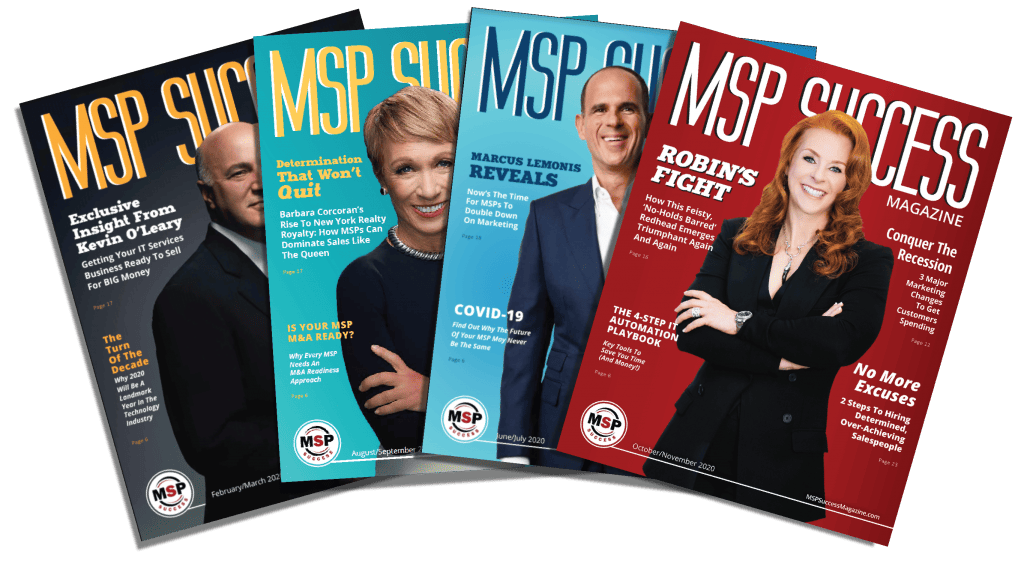At the heart of a leader’s ability to predict the future is data — and lots of it. Yet, leaders also need human-gathered intelligence to get a gut feel for the market and what is happening in the company so that they can make the right decisions.
Intelligence-Gathering
Data analysis must be augmented with plain old human intelligence-gathering. For all the big data computing power that Walmart Stores Inc. possesses, it sends teams from the Bentonville, Arkansas, headquarters out to stores to gather insight Monday through Thursday, bringing them back Thursday night. Its habit of gathering data on employees, customers, and the competition started in 1962 with a 6 a.m. meeting every Saturday at Sam Walton’s first store.
2 Lessons
- Senior leaders need to be in the market 80% of the week, either figuratively or literally.
- This routine must start on day one and continue through half a trillion in revenue!
Metrics Everywhere
When scaling our business, we start with the functions and processes driving the business, then push for the company to set goals, delineate measurable Brand Promises, and pick Critical Numbers on the One-Page Strategic Plan, including key performance indicators (KPIs) for both the people and process sides of the business so the leadership team has a balanced view of performance. The challenge is choosing metrics that matter — in other words, what’s important to customers and provides sufficient insight to help both the leadership team and all employees see problems and opportunities in time to react.
Qualitative insights from conversations with the market and observations of customers and competitors also help fill out the data set needed to guide decisions. Input from advisors, experts, and “the crowd” also contribute.
Rockefeller Habit #5: Gather Employee Input
Without a formal routine to prompt members of your team to share their perspectives, you risk having those ideas walk out the door at the end of every day. Worse yet, your workers miss an opportunity to contribute and feel good about it.
Bring Every Brain Into The Game
At a minimum, we recommend that all executives have a start/stop/keep (15–45-minute) conversation with at least one employee weekly. Then, discuss these at weekly management meetings.
Here are three simple questions we recommend you use when holding these conversations:
- What should we start doing?
- What should we stop doing?
- What should we keep doing?
Ongoing Feedback
Collect weekly input from employees about obstacles and opportunities. Ask employees to submit suggestions that will:
- Increase revenue
- Reduce costs
- Make something easier/better for the customers or employees
Close The Loop
Gathering employees’ feedback and ideas will backfire on the company if management doesn’t close the loop and act on their suggestions. Be transparent with employees. At a minimum, let an employee know why an idea can or can’t be implemented (middle-management team members can help with this).
Rockefeller Habit #6: Gather Customer Input
We implore all executives and middle managers to have a 4 Questions (4Q) conversation with at least one end user weekly.
We suggest that leaders ask customers the following in person:
- How are you doing?
- What’s going on in your industry/neighborhood?
- What do you hear about our competitors?
- How are we doing?
The key is to get them to talk about themselves, offer insight into industry trends in general, and help you cut through your own biases. Only after you’ve asked your customers these first three questions should you ask about their reactions to your offerings.
Using Social Media
Whichever competitor has the most market intelligence — and uses it — wins. Using powerful algorithms to discern correlations from users’ actions gives companies a great deal of insight. Much of this data also emerges from enticing customers to make comments and leave ratings for innumerable products and services online.
Again, Close The Loop
As you should with employee feedback, hold a middle-management team responsible for the process of closing the loop on all customer feedback.
Rockefeller Habit #9: KPIs For Everyone
Each team and person needs individual quarterly goals that align with the company’s clear plan for the next quarter. This creates “line of sight,” so every employee feels connected to the vision and direction of the company.
Did I Have A Great Day Or Week?
Every member of the team needs to be able to answer the question, “Did I have a great day or week?” Here’s the key: Each person must report on one or two KPIs weekly.
Some companies use a whiteboard that gets updated daily (and discussed at meetings), and some use spreadsheets posted to the wall. Whatever you utilize, companies will succeed only if every team member looks at the information weekly and makes adjustments based on their KPIs.
One Critical Number And 3 To 5 Rocks
The magic of the Scaling Up process is getting everyone in the company to accomplish one additional thing that is aligned with the company’s focus every 90 days. And like the company, all employees or teams need to set a handful of priorities (known as rocks) that will help them achieve their Critical Number.
When scaling our business, we strongly encourage companies to get an external coach (ideally, a Scaling Up Certified coach) to lead their quarterly and annual planning sessions and check in monthly to monitor progress. Everyone should also find a peer coach internally at the company. For more details, we have the link on ScalingUp.com.
Rockefeller Habit #10: Scoreboards Everywhere
Even if you’re seated in the nosebleed section of a stadium and can barely see the action on the field, you can always see the score. In this same way, have metrics, goals, and plans in a place where everyone can see them. Make sure that the core values, purpose, and priorities are posted throughout the company.
It is important to track and manage the cascading priorities and KPIs. The end goal is to keep the output from the Growth Tools top of mind, like the score of your favorite individual athlete or team.















